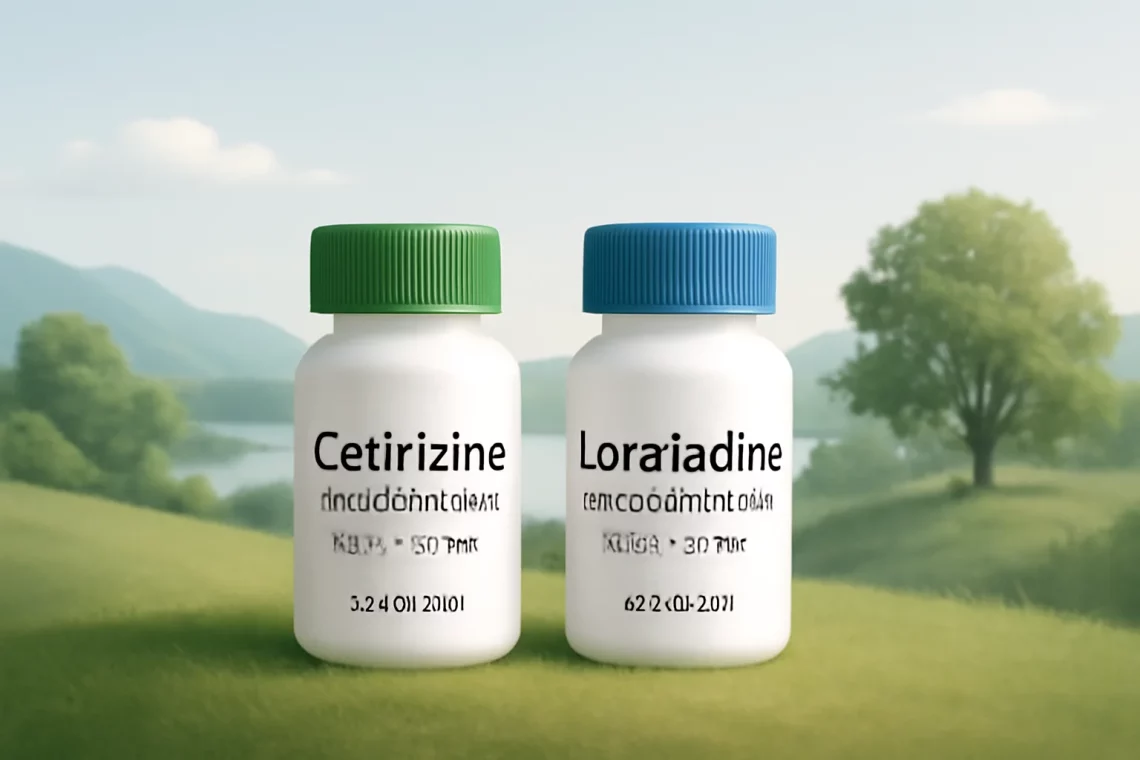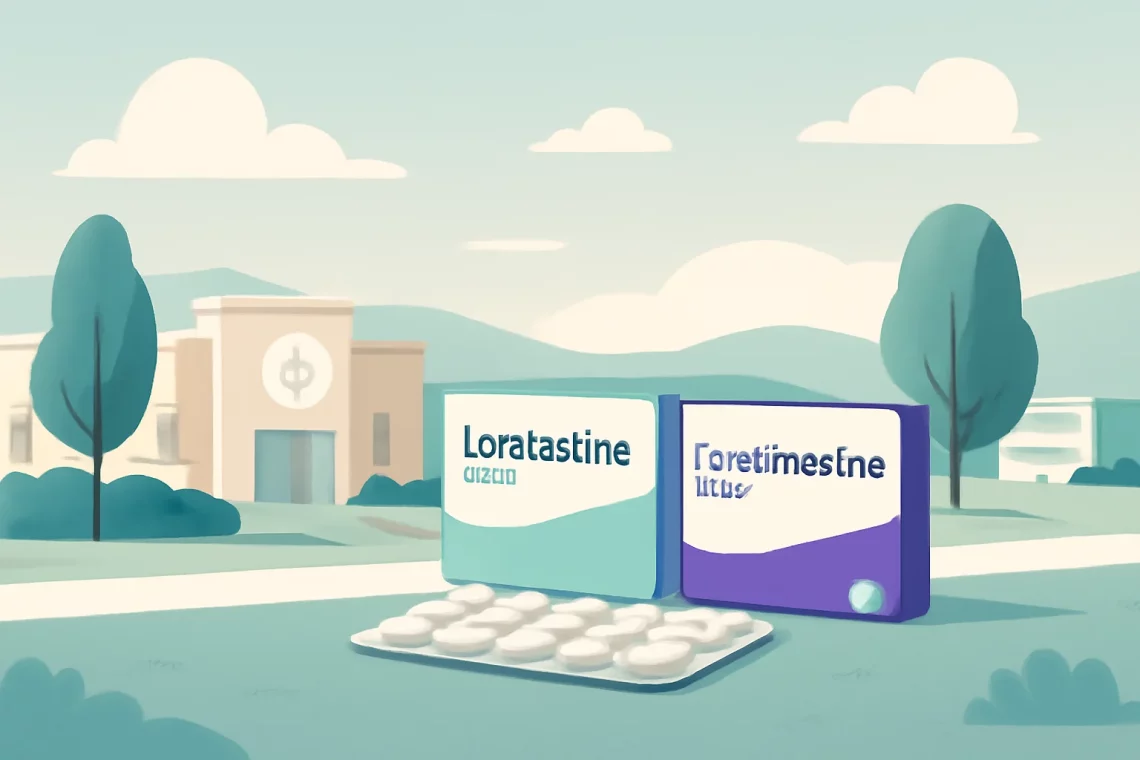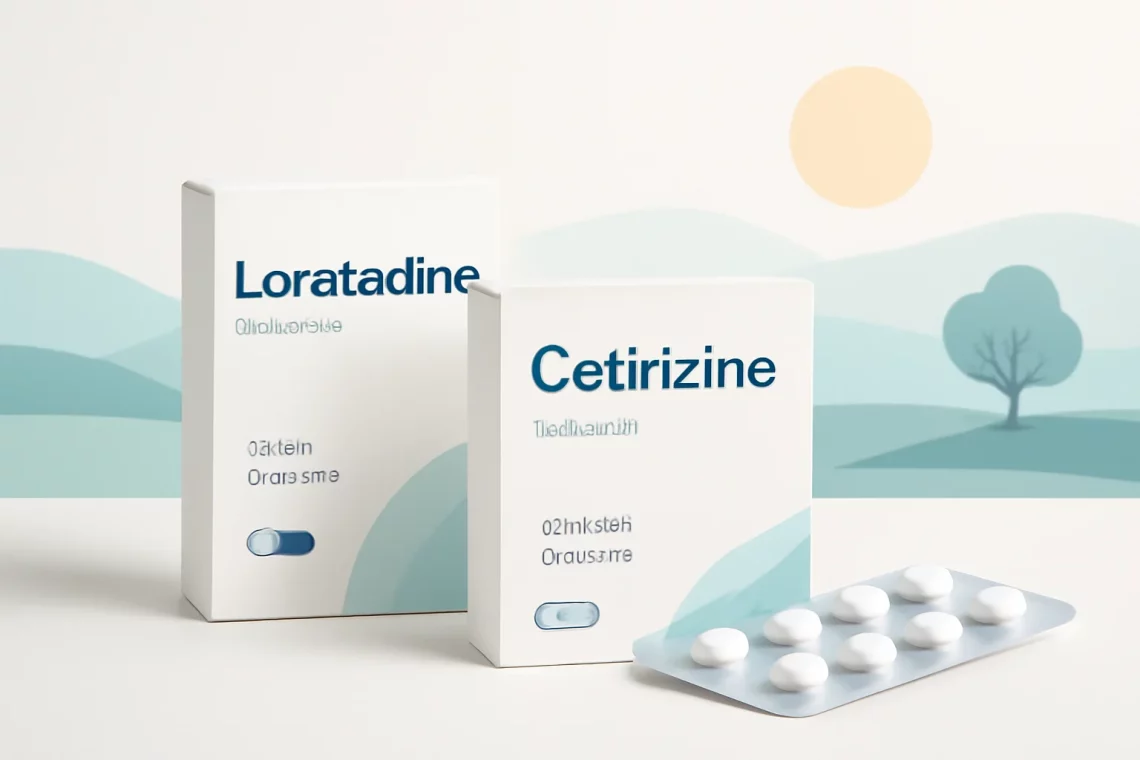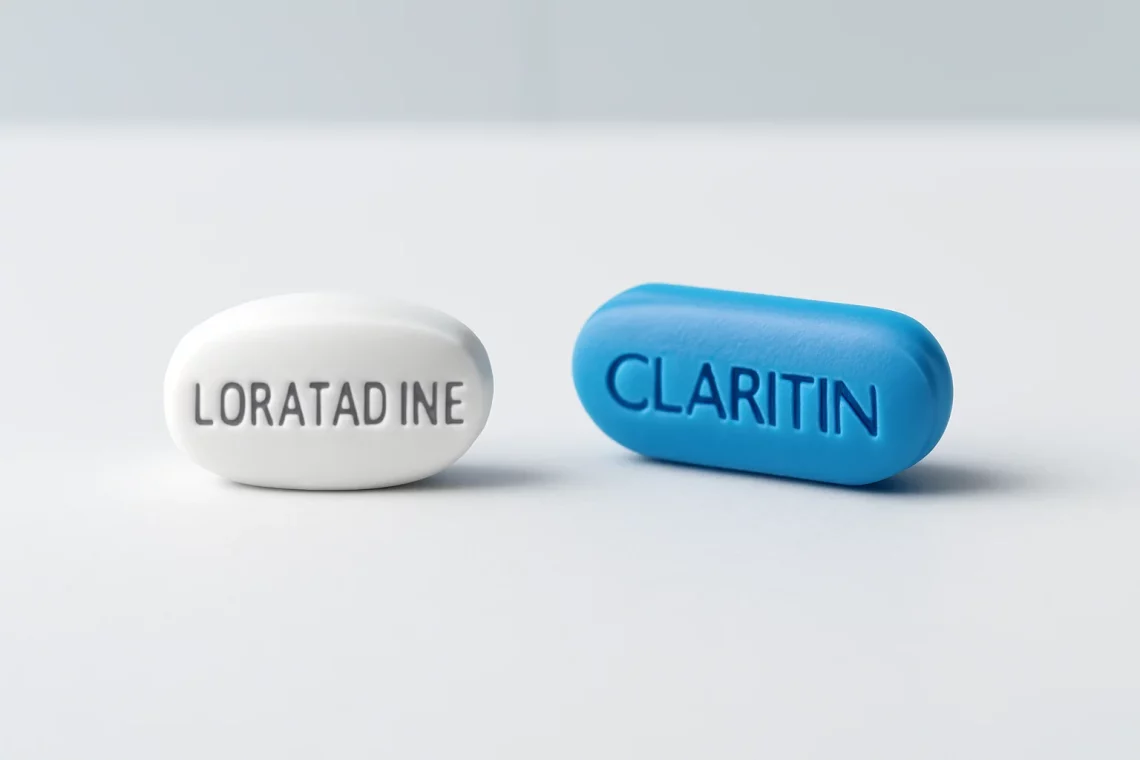-
Cetirizine vs Loratadine: Which Allergy Medication is Right for You?
In the world of antihistamines, cetirizine and loratadine are two popular choices for individuals seeking relief from allergy symptoms such as sneezing, runny nose, and itchy eyes. Both medications belong to a class of drugs known as second-generation antihistamines, which are designed to alleviate allergic reactions while minimizing drowsiness, a common side effect associated with first-generation antihistamines. As seasonal allergies and allergic reactions become increasingly prevalent, understanding the differences between these two medications can empower consumers to make informed decisions about their health. Cetirizine is known for its effectiveness in treating both indoor and outdoor allergies, while loratadine is often favored for its non-drowsy properties. However, the choice between cetirizine…
-
Xanax vs Vistaril: Understanding Their Uses and Differences
Anxiety and panic disorders have become increasingly common in today’s fast-paced world, leading many individuals to seek relief through medication. Among the various treatments available, Xanax and Vistaril are two medications frequently discussed in the context of anxiety management. Both have unique properties and mechanisms of action, making them suitable for different patient needs and circumstances. Xanax, a well-known benzodiazepine, is primarily prescribed for the treatment of anxiety disorders and panic attacks. It works by enhancing the effects of a neurotransmitter called gamma-aminobutyric acid (GABA), which helps to calm excessive brain activity. On the other hand, Vistaril, an antihistamine with anxiolytic properties, is often used not only for anxiety but…
-
Loratadine vs Diphenhydramine: Which Antihistamine Is Right for You?
Loratadine and diphenhydramine are two commonly used antihistamines that play a crucial role in managing allergy symptoms. They are both effective in alleviating conditions such as hay fever, allergic rhinitis, and other allergic reactions. While they serve a similar purpose, the way they work and their side effects can vary significantly, making it essential for users to understand the differences between them. Antihistamines function by blocking the action of histamine, a substance in the body that causes allergic symptoms. However, there are two primary categories of antihistamines: first-generation and second-generation. Diphenhydramine falls into the first-generation category, while loratadine is classified as a second-generation antihistamine. This distinction is essential for users,…
-
Loratadine vs Fexofenadine: Which Antihistamine is Right for You?
Allergies are a common concern for many individuals, affecting millions worldwide. As the seasons change, pollen and other allergens become prevalent, leading to a surge in allergic reactions. Symptoms such as sneezing, nasal congestion, and itchy eyes can significantly impact daily life. To combat these discomforts, various antihistamines are available, each with its unique properties and effectiveness. Among the most popular options are loratadine and fexofenadine, both of which are second-generation antihistamines. These medications are designed to alleviate allergy symptoms without causing excessive drowsiness, a common side effect associated with first-generation antihistamines. Understanding the differences between loratadine and fexofenadine is essential for individuals seeking relief from allergies. While both medications…
-
Xanax vs Hydroxyzine: Key Differences and Uses Explained
Xanax and hydroxyzine are two medications that are often prescribed for anxiety and related conditions. While both are effective in managing symptoms, they operate through different mechanisms and have distinct profiles. Xanax, which belongs to the benzodiazepine class of drugs, is commonly used for the short-term relief of anxiety and panic disorders. Its fast-acting nature and potential for dependence make it a medication that requires careful monitoring. On the other hand, hydroxyzine is an antihistamine that is often used as a sedative to treat anxiety and tension. Unlike Xanax, hydroxyzine is not classified as a controlled substance, making it a safer option for some patients. It’s important to understand the…
-
Loratadine vs Cetirizine: Which Allergy Medication Is Right for You?
Allergies can be a nuisance, affecting millions of people worldwide. Seasonal changes, pet dander, dust mites, and various environmental factors can trigger allergic reactions, leading to symptoms such as sneezing, itching, and nasal congestion. As the demand for relief from these symptoms grows, many individuals turn to over-the-counter antihistamines. Two of the most popular options are Loratadine and Cetirizine. Both medications belong to the class of second-generation antihistamines and are commonly used to alleviate allergy symptoms. However, despite their similar purposes, they have distinct differences in their effectiveness, side effects, and usage guidelines. Understanding these differences can help individuals make informed choices about which medication may be more suitable for…
-
Loratadine vs Levocetirizine: Which Antihistamine is Right for You?
Allergies can significantly affect daily life, often leading to discomfort and decreased productivity. As the prevalence of allergic conditions continues to rise, effective management through medication has become a priority for many individuals. Among the most commonly prescribed antihistamines, Loratadine and Levocetirizine are frequently considered options for alleviating allergy symptoms. These medications serve as first-line treatments for allergic rhinitis and other allergic reactions, but they differ in several key aspects, including their chemical structure, efficacy, side effects, and dosage recommendations. Understanding these differences is essential for patients and healthcare providers alike, as it can guide them in making informed decisions regarding the most suitable treatment option. As we delve into…
-
Loratadine vs Claritin: Key Differences You Should Know
Loratadine and Claritin are terms often used interchangeably in discussions regarding the management of allergy symptoms. For many, particularly those suffering from seasonal allergies or allergic rhinitis, understanding the nuances between these two names can be critical in making informed decisions about their health. As a second-generation antihistamine, loratadine has gained popularity for its effectiveness in alleviating allergy-related symptoms such as sneezing, runny nose, and itchy eyes. However, Claritin, which is a brand name for loratadine, has also carved out a significant place in the market, leading to some confusion among consumers about their differences. The landscape of allergy medications is vast, with countless options available that promise relief from…
-
Claritin for Dogs Dosage Chart: Safe Use and Guidelines
When it comes to the health and well-being of our furry companions, pet owners are often on the lookout for effective solutions to various ailments. Allergies are among the most common issues that dogs face, leading to discomfort and affecting their quality of life. These allergies can manifest in various ways, including itching, sneezing, and skin irritations. As a responsible pet owner, understanding the treatment options available is essential. One medication that has gained attention in the pet care community is Claritin, an antihistamine primarily known for its effectiveness in humans. However, as with any medication, it is crucial to consider the appropriate dosage and safety guidelines when administering it…
-
Understanding Antihistamines for Horses: Benefits and Usage Guide
Understanding allergies in horses is crucial for any equine owner or enthusiast. Horses, like humans, can suffer from various allergic reactions, which may manifest in numerous ways, such as skin irritations, respiratory issues, or gastrointestinal problems. These reactions can significantly impact a horse’s quality of life, affecting their performance, behavior, and overall health. As a result, understanding the underlying causes of these allergies and how to manage them is essential for maintaining a happy and healthy equine companion. One of the most effective ways to alleviate the symptoms of allergies in horses is through the use of antihistamines. These medications work by blocking the action of histamine, a chemical released…







































